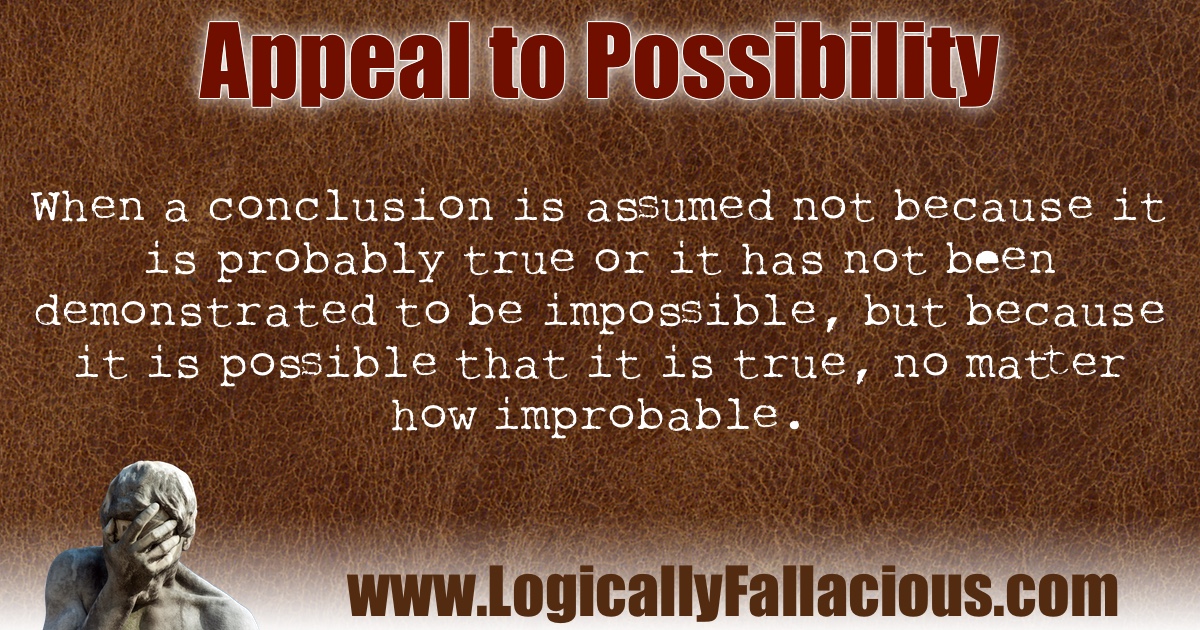- Joined
- Jul 17, 2020
- Messages
- 47,360
- Reaction score
- 26,044
- Location
- Springfield MO
- Gender
- Male
- Political Leaning
- Liberal
“Appeal to Possibility
Description: When a conclusion is assumed not because it is probably true or it has not been demonstrated to be impossible, but because it is POSSIBLE that it is true, NO MATTER HOW IMPROBABLE.”
Appeal to Possibility
When a conclusion is assumed not because it is probably true, but because it is possible that it is true, no matter how improbable.
This is a logical fallacy that is used quite often by the God believers (and the agnostics) when they run out of truly logical debate points. There are a number of variations of it. For instance, over in “The New Atneism” thread, Rich claims that: “Reality contains countless unknowns, possibilities, and unexplained phenomena” and also that “No evidence does not mean no existence. All it means is that we've not found any evidence yet, not that we're never going to” and, of course, that “absence of evidence is not evidence of absence”. All of these statements are just subsets of the “anything is possible” logical fallacy IN DEBATE since there is no truly REALITY-BASED, LOGICAL way to answer them. These and similar statements are not meant to further debate but rather to fairly immediately stifle it.
So has to combat the debator who often uses the “APPEAL TO POSSIBILITY logical fallacy?
